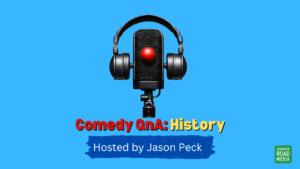A few weeks ago at my local Toastmasters club in London, I had the privilege to see a former member of the club be a General Evaluator. The speaker in question, Phillip Khan-Panni, is now a professional. What struck me when I saw him speak was how resonant, rich and, in the words of my old vocal coach, “fruity” his voice sounded. I realised how important vocal exercises were for public speakers.
It reminded me that in my pursuit of achieving my speaking goals within Toastmasters I had neglected to give adequate attention to maintaining and improving my vocal range. The thing is it wouldn’t be that difficult for me to get my voice “fighting fit” again as it was trained for 3 years at drama school.
I feel that imparting vocal techniques and tips a little difficult in the form of a written blog post as it’s a subject that one could dedicate an entire blog to. There are numerous aspects to voice development and care such as warming the voice, articulation exercises, stretching the vocal range and so on. Then, of course, there’s dealing with individual vocal problems that need to be ironed out.
Why is it important to exercise the voice?
Well, fundamentally it’s because the voice for a speaker as well as for an actor, is an important part of one’s instrument. It sounds a little silly to refer to your body and voice as your instrument, but if you think about it as a speaker or presenter you are using just yourself. Yes, you may have a presentation or props, but it is you that people listen to and if your voice isn’t clear and uses it’s full range of expression then your listeners will be turned off.
Without getting too bogged down with the science of the articulatory muscles and how the work, I’ll just quickly mention that they are as follows:
the tip of the tongue
the hard palate
the soft palate
the back of the tongue
the teeth and the lips
Now, there are probably many professional vocal coaches out there who are ready to argue with me on these points and say that I should tell you what the correct categories are, whether they are active or passive articulators. But for the purposes of this post I don’t feel it’s necessary.
So here’re some brief Dos and Don’ts for Vocal Tips:
Don’t consume dairy: Before you speak or present make sure you keep your dairy intake to a minimum. Dairy products have a tendency to produce excess mucus which can make you snort and constantly feel like you have to clear your throat. Keep yourself lubricated by drinking plenty of water or herbal tea. Too much caffeinated tea can dehydrate you. If you’re drinking plenty of water before you speak remember to use the loo (rest room).
Do speak your words out loud: I’ve talked about the benefits of rehearsing your speech or presentation elsewhere in this blog. By speaking the words out loud your mouth gets used to saying the words and as a result you’re less likely to stumble over what you’re saying because your body has a physical memory.
Do hum before you speak: By gently humming, your voice gets to go hum and down it’s range and gets warmed up. At drama school we used to hum a very slow version of the nursery rhyme “Pop Goes The Weasel”. As a quick refresher here’s the lyrics as I know them:
Half a pound of tuppenny rice,
Half a pound of treacle.
That’s the way the money goes,
Pop! goes the weasel.
Here’s a link to wikipedia where they have alternative versions of the lyrics that you may know. There’s also a notation of the tune on there for anyone unfamiliar with it: Pop Goes the Weasel. It’s quite a jaunty little jig, but you’ll want to slow it right down when you hum your way through it. Also, make sure you don’t push yourself. Be gentle.
Do use tongue twisters: Tongue twisters are a good way to exercise your articulation muscles. Here’re a couple of my favourites:
Articulatory agility
is a desirable ability
manipulating with dexterity
the tongue, the palate, and the lips.
Red leather, yellow leather. (repeat 5 times)
The tip of the tongue, the teeth, the lips. (repeat 5 times)
The back of the tongue and the tip of the tongue (repeat 5 times)
Here’s a quick link to a tongue twisters website that has a tonne more to practice with and has tongue twisters in different languages too.
That’s it for now. I’m sure you can go on to Amazon, Barnes & Noble, or eBay and pick up a good book on vocal technique. I shall more than likely blog on this subject again in the future. Here’s a quick list of recommended authors of the subject of voice:
Patsy Rodenberg
Kristine Linklater
Michael McCallion
Cicely Berry
So remember that vocal exercises are as important for public speakers as they are for professional actors.



